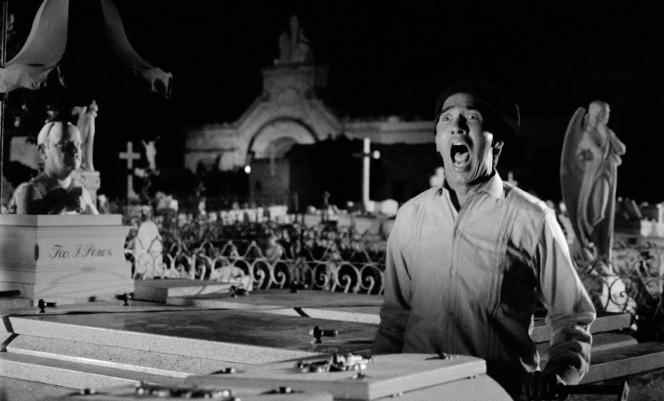In 1959, Fidel and Raoul Castro, accompanied by Ernesto Guevara, put down the authoritarian regime, loyal to the United States, of General Fulgencio Batista. Seven years later, the Cuban filmmaker Tomas Gutierrez Alea, cultural figure of the new Marxist-Leninist regime, directed The Death of a Bureaucrat, which makes fun of the country’s administrative burdens. The film opens with the death of a worker, Francisco J. Perez, who invented a machine to make the busts of the independence hero, tutelary figure of the Cuban revolution, José Marti, who died in 1895 during the Battle of Back Rios. The inventor, alas, did not take long to join his model, crushed by the cogs of his machine.
This funeral with great proletarian pomp opens a macabre farce. The fiery orator, in front of the tomb, suggests that the industrious hero be buried with his workbook, as a symbol of his condition. But a few days later, his widow learns that she cannot, in the absence of this document, receive the pension which is due to her. With Juanchin, his nephew who accompanies him, they thus experience the first bureaucratic sweetness when, asking if a duplicate of the document cannot be made, the two hear each other answer by the employee who asks for it by gorging himself. pellets: “No, only the person concerned is authorized to do so”.
Compassionate Gravediggers
A hierarchical superior, ranting endlessly about the administrative vacuum covered by this case, recommends the path of exhumation. In the service concerned, a surly secretary who gives him “comrade” replies to Juanchin that it is not possible to proceed for two years, unless a judicial warrant is obtained. The viewer, who naturally identifies with the unfortunate nephew, clearly senses the end of the beans coming. With great evils, the great means, the latter therefore plans to recover the object clandestinely with the help of a handful of compassionate gravediggers. Unfortunately, they are surprised by the cemetery caretaker, who forces them to kill themselves with the coffin of the deceased.
Cuban filmmaker Tomas Gutierrez Alea,
makes fun of the country’s administrative burdens
It is here, in truth, that the barrel of bureaucratic danaides opens wide. For if Juanchin had hitherto come up against a delicate problem, here he is confronted with an insoluble affair. If he has recovered the booklet, he nevertheless finds himself with a supernumerary corpse on his arms. Having failed to obtain an authorization for exhumation, the administration now refuses to grant him a burial permit. So we are on our way to madness. Asylum and murder are in fact at the end of the film, even as the government, as the film shows, begins a major campaign against bureaucracy.
You have 15.23% of this article left to read. The following is for subscribers only.
